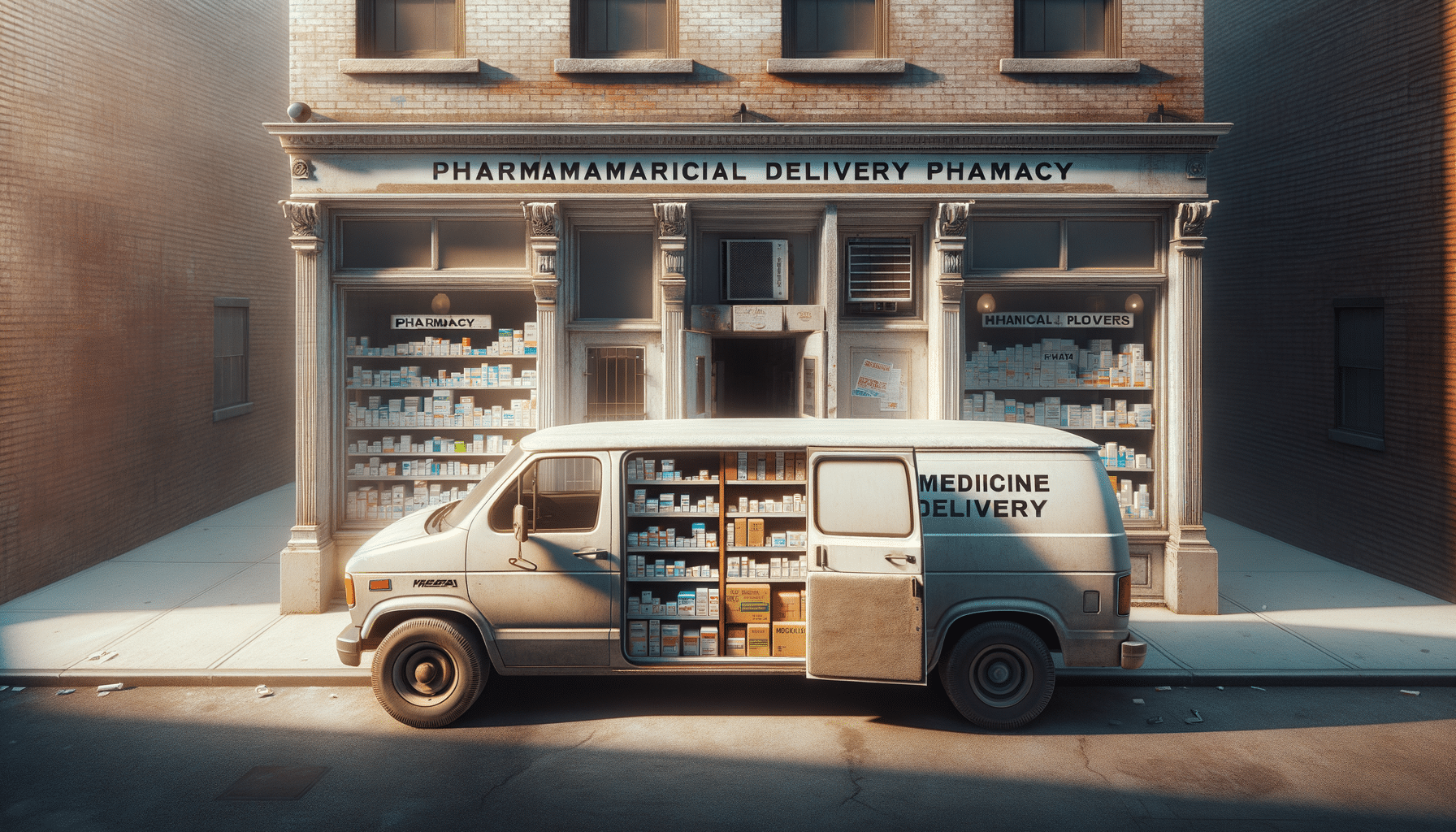
How to Become a Medicine Delivery Driver
Introduction to Medicine Delivery Driving
In the age of convenience, the demand for efficient delivery services has surged, and this includes the essential service of medicine delivery. Medicine delivery drivers play a crucial role in the healthcare system by ensuring that prescriptions reach patients, clinics, and care facilities on time. This service is particularly vital for individuals with mobility challenges or those living in remote areas. Understanding the nuances of this role can open doors for individuals interested in contributing to healthcare in a unique way.
The role of a medicine delivery driver is not just about transporting packages; it involves meticulous route planning, adhering to safety protocols, and time-sensitive coordination. These drivers must be able to navigate efficiently while maintaining the integrity of the medicines they carry, which often involves temperature control and secure handling.
As the healthcare industry continues to evolve, the role of medicine delivery drivers is becoming more prominent. They are the unsung heroes who bridge the gap between pharmacies and patients, ensuring the continuity of care. This article will delve into the various aspects of becoming a medicine delivery driver, from qualifications and skills to the daily challenges and rewards of the job.
Qualifications and Skills Required
Becoming a medicine delivery driver requires a combination of specific qualifications and skills. While the prerequisites may vary depending on the employer, there are some common requirements that aspiring drivers should be aware of.
Firstly, a valid driver’s license is a must. Depending on the region, a commercial driver’s license (CDL) might be required, especially if driving larger vehicles. A clean driving record is also crucial, as it reflects the driver’s reliability and adherence to traffic laws.
Beyond driving credentials, medicine delivery drivers must possess excellent organizational skills. Route planning is a significant part of the job, and drivers need to optimize their paths to ensure timely deliveries. Familiarity with GPS technology and route optimization software can be advantageous.
Attention to detail is another critical skill. Drivers must ensure that they are delivering the correct medications to the right recipients. This requires checking labels and verifying patient information meticulously. Additionally, understanding basic safety and handling procedures for sensitive medications is essential to maintain the efficacy of the drugs.
Soft skills such as communication and customer service are also vital. Drivers often interact with patients or healthcare providers, so being courteous and professional can enhance the service experience. Lastly, physical stamina is necessary as the job may involve lifting and moving packages of varying sizes.
Daily Responsibilities and Challenges
The daily responsibilities of a medicine delivery driver can be diverse and challenging. Each day typically begins with receiving delivery lists and planning routes. Drivers must assess traffic conditions, weather, and other factors that might affect their schedule.
Once en route, drivers must adhere to strict timelines while ensuring the safe transport of medications. This often involves maintaining the correct temperature for certain pharmaceuticals, which can be a challenge during extreme weather conditions. Ensuring the security of the packages is also a top priority to prevent theft or tampering.
One of the significant challenges is time management. Drivers must balance the need for efficiency with the necessity of safety. Rushing to meet deadlines can lead to accidents or errors, so drivers must be adept at managing their time wisely.
Interactions with patients and healthcare professionals can also present challenges. In some cases, drivers may need to explain delivery procedures or address concerns about the medications being delivered. Being prepared to handle such situations with tact and professionalism is essential.
Despite these challenges, the role is incredibly rewarding. Knowing that their work directly contributes to patient care and well-being gives drivers a sense of purpose and fulfillment.
Career Opportunities and Growth
The field of medicine delivery offers various career opportunities and potential for growth. As the demand for delivery services continues to rise, there is a growing need for skilled drivers. This demand is particularly high in urban areas with dense populations and in rural regions where pharmacy access is limited.
For those starting as delivery drivers, there are opportunities to advance into supervisory or managerial roles. Experience and a proven track record can lead to positions such as route coordinator or logistics manager, where individuals oversee multiple drivers and ensure the smooth operation of delivery services.
Additionally, drivers can choose to specialize in certain types of deliveries, such as high-value pharmaceuticals or temperature-sensitive medications. Specialization can lead to increased responsibilities and, potentially, higher compensation.
Entrepreneurial drivers might consider starting their own delivery service. With experience, they can establish a business catering to local pharmacies or healthcare providers, offering personalized and reliable delivery solutions.
The future of medicine delivery is promising, with advancements in technology and logistics continuously improving the efficiency and scope of this essential service. For those interested in healthcare and logistics, a career as a medicine delivery driver can be both fulfilling and lucrative.
Conclusion: A Vital Role in Healthcare
Medicine delivery drivers are an integral part of the healthcare ecosystem, providing a critical service that ensures patients receive their medications promptly and safely. The role demands a unique blend of skills, from driving and logistics to customer service and attention to detail.
For individuals interested in this career path, understanding the responsibilities and challenges is essential. The job offers not only a stable career but also the satisfaction of contributing to the well-being of others.
As the healthcare industry continues to evolve, the importance of medicine delivery drivers will only increase. They are the link that connects pharmacies to patients, ensuring continuity of care and supporting the overall healthcare infrastructure. For those eager to make a difference, becoming a medicine delivery driver is a path worth considering.


